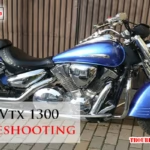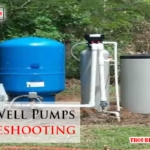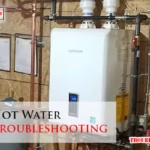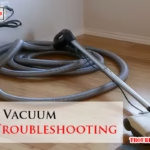Owning a Chevy HHR can be a rewarding experience. But like any vehicle, it might face some issues over time.
Understanding and troubleshooting these problems is key to maintaining your car’s performance. In this blog post, we will explore common issues that Chevy HHR owners might encounter. We’ll provide practical tips to help you diagnose and fix these problems. Whether you’re dealing with engine troubles, electrical glitches, or unusual noises, we’ve got you covered.
This guide aims to make troubleshooting your Chevy HHR straightforward and less daunting. So, let’s dive in and keep your Chevy HHR running smoothly and reliably.
Common Chevy Hhr Issues
The Chevy HHR, a versatile and popular vehicle, can face some common issues. Understanding these problems helps in maintaining and troubleshooting your car. Here, we discuss the most frequent issues that Chevy HHR owners encounter.
Electrical Problems
Electrical problems often occur in the Chevy HHR. Owners report issues with the power windows. The windows may stop functioning suddenly. This can be due to a faulty switch or a bad motor. Another common issue involves the dashboard lights. These lights may flicker or go out completely. This can be caused by a loose connection or a failing light bulb.
Battery problems are also frequent. The car might not start due to a dead battery. Sometimes, the alternator fails to charge the battery properly. Regular checks can prevent these issues. Ensure the battery terminals are clean and secure. Check the alternator’s output regularly.
Engine Performance
Engine performance issues are another common problem. Many owners report a rough idle. This can be caused by a dirty throttle body or bad spark plugs. Replacing spark plugs and cleaning the throttle body can help. Another issue is loss of power during acceleration. This might be due to a clogged fuel filter or a failing fuel pump. Regular maintenance of the fuel system can prevent such problems.
Overheating is also a concern for some HHR models. This can be caused by a failing thermostat or a leaking radiator. Check the coolant levels regularly and inspect for leaks. Ensure the radiator is clean and free from debris. Addressing these issues promptly can prevent major engine damage.
Diagnosing Electrical Problems
Electrical problems in a Chevy HHR can be frustrating. They affect many functions of the vehicle. To fix these issues, you need to know the common causes. This guide will help you diagnose electrical problems effectively.
Battery Issues
The battery is the heart of your Chevy HHR’s electrical system. A weak or dead battery can cause many problems. Here are some signs of battery issues:
- Engine won’t start.
- Dim headlights.
- Electrical components malfunctioning.
To diagnose battery issues, follow these steps:
- Check the battery terminals for corrosion.
- Use a multimeter to test the battery voltage.
- If voltage is below 12.4 volts, the battery may need charging.
- If the battery doesn’t hold a charge, it may need replacement.
Regular battery maintenance can prevent many problems. Clean the terminals and check the voltage often.
Alternator Malfunctions
The alternator charges the battery and powers electrical systems. A faulty alternator can lead to various issues. Here are some symptoms of alternator problems:
- Battery warning light on the dashboard.
- Dim or flickering lights.
- Strange noises from the engine bay.
To diagnose alternator malfunctions, follow these steps:
- Start the engine and let it run.
- Check the battery voltage with a multimeter.
- If the voltage is between 13.8 and 14.4 volts, the alternator is working.
- If the voltage is outside this range, the alternator may be faulty.
Replacing a faulty alternator can solve many electrical problems. Regular checks can keep your Chevy HHR running smoothly.
Fixing Engine Performance
Experiencing issues with your Chevy HHR’s engine can be frustrating. Troubleshooting these problems is vital to ensure your vehicle runs smoothly. Here, we focus on fixing engine performance, particularly addressing misfiring cylinders and fuel system troubles.
Misfiring Cylinders
A misfiring cylinder in your Chevy HHR can lead to rough idling and poor acceleration. Common causes include faulty spark plugs, ignition coils, or fuel injectors. To diagnose a misfire, follow these steps:
- Check the engine light for codes.
- Inspect the spark plugs for wear or damage.
- Test the ignition coils with a multimeter.
- Examine the fuel injectors for clogs or leaks.
Replace any faulty components to restore your engine’s performance. Regular maintenance can prevent future misfires.
Fuel System Troubles
Fuel system issues can significantly affect your Chevy HHR’s engine performance. Symptoms may include hard starting, stalling, or poor fuel economy. Key areas to check include:
- Fuel filter – Replace if clogged or dirty.
- Fuel pump – Ensure it provides adequate pressure.
- Fuel injectors – Clean or replace if necessary.
- Fuel lines – Check for leaks or damage.
Use a fuel pressure gauge to test the system. Ensure all components are in good condition. This helps maintain optimal engine performance and efficiency.

Credit: www.amazon.com
Transmission Troubleshooting
Transmission issues in your Chevy HHR can be a frustrating experience. This guide will help you understand and troubleshoot common transmission problems. Proper maintenance can prevent many issues. Let’s dive into the details.
Shifting Problems
Experiencing trouble while shifting gears? This is a common issue with the Chevy HHR. Here are some signs to watch for:
- Delayed shifting
- Hard shifts
- Slipping gears
- Stuck in one gear
Delayed shifting can occur due to low transmission fluid. Hard shifts might indicate a worn transmission mount. Slipping gears could mean a failing clutch or band. If the car gets stuck in one gear, the issue could be with the shift solenoid.
Transmission Fluid Leaks
Leaking transmission fluid is another common problem. Identifying and fixing leaks early can save you from costly repairs. Look out for these signs:
- Puddles under the car
- Low transmission fluid level
- Burnt smell from fluid
- Transmission slipping
Check the transmission pan and the gasket for leaks. Also, inspect the cooler lines and seals. Using the right type of transmission fluid is crucial. Refer to your owner’s manual for the correct fluid type.
| Symptom | Possible Cause |
|---|---|
| Delayed shifting | Low fluid, dirty fluid, or worn parts |
| Hard shifts | Worn transmission mount or fluid issues |
| Slipping gears | Failing clutch or band |
| Stuck in one gear | Faulty shift solenoid |
| Puddles under the car | Leaking pan gasket or cooler lines |
| Burnt smell from fluid | Overheating or dirty fluid |
Regular maintenance can help prevent these issues. Check fluid levels often and replace old fluid. Address any signs of trouble promptly to keep your Chevy HHR running smoothly.
Brake System Issues
Experiencing brake system issues with your Chevy HHR can be frustrating. These problems can impact safety and driving comfort. Understanding common brake issues helps in troubleshooting and fixing them. Here are some common brake system issues.
Brake Pad Wear
Brake pad wear is a common issue in vehicles. Worn brake pads reduce braking efficiency. You might hear a squealing noise when pressing the brake pedal. This noise indicates that the brake pads need replacing. Thin brake pads can also cause the vehicle to take longer to stop. Regularly check the brake pad thickness. Replace them if they are too thin. This ensures safer driving and better brake performance.
Hydraulic System Failures
The hydraulic system is crucial for effective braking. Low brake fluid levels can cause hydraulic failures. Check the brake fluid reservoir regularly. Top it up if necessary. Leaks in the hydraulic system can lead to brake failure. Inspect the brake lines for any signs of leakage. Replace damaged lines immediately. Air in the hydraulic system can also cause problems. Bleed the brakes to remove any air bubbles. This helps maintain proper brake function.

Credit: m.youtube.com
Suspension And Steering
The suspension and steering systems of your Chevy HHR are critical. They ensure a smooth ride and proper control. Problems in these areas can affect your driving experience. Knowing how to troubleshoot these issues can save you time and money.
Suspension Wear
Suspension wear is common in older vehicles, including the Chevy HHR. Worn-out suspension parts can cause a bumpy ride. They can also make your car unstable.
Here are some signs of suspension wear:
- Uneven tire wear
- Clunking noises over bumps
- Excessive bouncing after hitting a bump
- Leaning to one side
To identify suspension problems, inspect the following parts:
| Part | What to Look For |
|---|---|
| Shock Absorbers | Leaks, damage, or poor performance |
| Struts | Worn bushings or mounts |
| Control Arms | Cracks or excessive play |
Steering Difficulties
Steering issues can be dangerous. They can cause your Chevy HHR to handle poorly. Address these problems promptly to ensure your safety.
Common steering difficulties include:
- Stiff or hard steering
- Steering wheel vibration
- Loose or wandering steering
- Unusual noises while turning
To troubleshoot steering problems, check the following:
- Power Steering Fluid: Low fluid levels can cause stiff steering.
- Steering Rack: Look for leaks or wear.
- Ball Joints: Excessive play can affect steering accuracy.
- Tie Rod Ends: Inspect for wear or damage.
Regular maintenance is key to avoiding suspension and steering problems. Always keep an eye on these systems. This ensures your Chevy HHR remains safe and reliable.
Climate Control Problems
Climate control issues in your Chevy HHR can be quite frustrating. They can make your car uncomfortable during extreme weather. This section will guide you through some common problems and how to solve them.
Ac Not Cooling
One of the most common problems is the air conditioning not cooling properly. This issue can stem from several causes:
- Low Refrigerant Levels: Check the refrigerant levels. Low levels can hinder the AC’s performance.
- Faulty Compressor: The compressor may not be working. This often needs professional attention.
- Clogged Condenser: Dirt or debris can clog the condenser. Clean it to restore functionality.
To diagnose the exact issue, follow these steps:
- Turn on the AC and set it to the coolest setting.
- Listen for any unusual noises from the compressor.
- Check if the air coming out of the vents is cold.
If these steps don’t help, consult a professional mechanic.
Heater Malfunctions
The heater can also malfunction in a Chevy HHR. This can make winter drives unbearable. Common causes include:
- Thermostat Issues: A faulty thermostat can prevent the heater from working.
- Heater Core Problems: Leaks or blockages in the heater core can cause issues.
- Blower Motor Failure: If the blower motor fails, the heater won’t blow warm air.
For troubleshooting the heater:
- Turn on the heater and set it to the highest setting.
- Check if the air from the vents is warm.
- Listen for any unusual noises from the blower motor.
If these steps don’t resolve the issue, seek professional help.
Routine Maintenance Tips
Routine maintenance is key to keeping your Chevy HHR running smoothly. Regular upkeep can prevent costly repairs and ensure your vehicle’s longevity. Here are some essential tips to keep your Chevy HHR in top shape.
Oil Changes
Oil changes are vital for your Chevy HHR’s engine health. Fresh oil lubricates engine parts, reducing friction and wear. Change your oil every 3,000 to 5,000 miles. This prevents engine damage and keeps your vehicle running efficiently. Always use the recommended oil type for your HHR model.
Tire Rotations
Tire rotations help maintain even tire wear. Rotate your tires every 6,000 to 8,000 miles. This extends tire life and ensures a smooth ride. Proper tire maintenance also improves fuel efficiency. Check tire pressure regularly and keep it at the recommended level.

Credit: thecarmaxunicornblog.com
Frequently Asked Questions
What Are Common Issues With Chevy Hhr?
Common issues include electrical problems, transmission failures, and power steering problems. These can cause various driving issues.
Why Is My Chevy Hhr Not Starting?
Battery issues, faulty alternator, or bad starter can prevent the engine from starting. Check these components first.
How To Fix Chevy Hhr Power Steering Problems?
Check the power steering fluid level. Also, inspect for any leaks. Repair or replace faulty parts if needed.
Why Does My Chevy Hhr Overheat?
Overheating is often caused by a faulty thermostat, radiator issues, or low coolant levels. Check these components.
How To Reset The Chevy Hhr Check Engine Light?
Use an OBD-II scanner to identify and fix the issue. Then, reset the check engine light.
Conclusion
Fixing your Chevy HHR can seem tough, but it’s doable. Understanding common issues helps a lot. Check engine lights, battery problems, and brake issues are frequent. Regular maintenance can prevent many problems. Stay informed, and your HHR will run smoothly.
Remember, patience and basic knowledge go a long way. Keep this guide handy for future reference. Happy driving!






